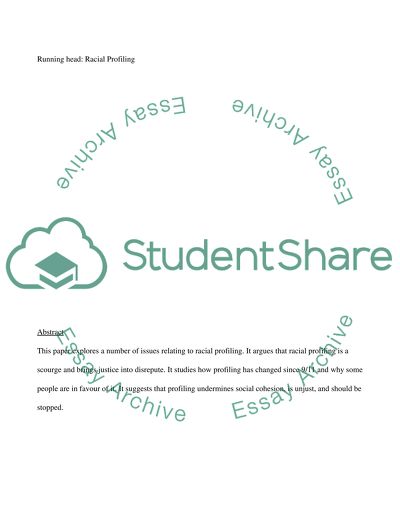Cite this document
(“Racial profiling is not beneficial despite expert's findings Term Paper”, n.d.)
Retrieved from https://studentshare.org/environmental-studies/1421220-racial-profiling-is-not-beneficial-despite
Retrieved from https://studentshare.org/environmental-studies/1421220-racial-profiling-is-not-beneficial-despite
(Racial Profiling Is Not Beneficial Despite expert'S Findings Term Paper)
https://studentshare.org/environmental-studies/1421220-racial-profiling-is-not-beneficial-despite.
https://studentshare.org/environmental-studies/1421220-racial-profiling-is-not-beneficial-despite.
“Racial Profiling Is Not Beneficial Despite expert'S Findings Term Paper”, n.d. https://studentshare.org/environmental-studies/1421220-racial-profiling-is-not-beneficial-despite.


